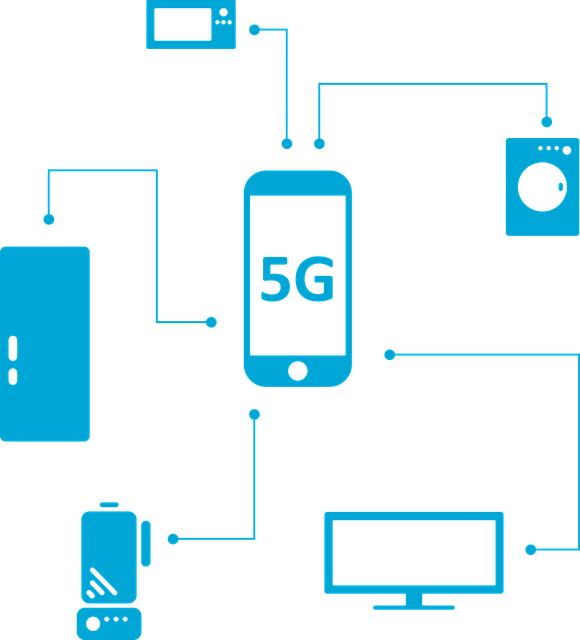D10: Beginning Of Telecom Independence?

________________________________________________________________________________
This Blog is written by Priyank Sudhir Shah from Gujarat Law Society Law College. Edited by Ritika Sharma.
________________________________________________________________________________
INTRODUCTION
The telecom sector continues to be the epicenter of growth, innovation, and disruption for its own and other industries. Traditionally the telecom industry was all about telephones or phone calls, but in these advanced times, the shift has been observed from this traditional usage towards messaging, emails, and internet services. The demand in today’s time is more inclined towards internet usage. The Internet has become one of the important aspects of human life; it has become a basic need for the advancing world. The world today is more reliant on this sector, especially the corporate world. The same sector is considered to be the key towards more accessible life with ease at various things like video conferencing from any part of the world, gathering information at any place and at any time, etc. are some of the benefits that it accords to the world, the same has been observed during these stressing times. This pandemic has made people realize the reliance they have on the telecom sector, hence more and more innovation is desired in the sector. The sector has become a subject that is desired to be innovated and more and more developments should be brought to this sector. Similarly, just like its need, the sector is a well profit-earning sector, with a huge amount of revenue being generated from it. Huawei is one such company that deals in providing telecommunication equipment. It’s been a few weeks and there have been certain controversies around this company. 5G is the new kind of network and Huawei is the company that was supposed to provide equipment for this purpose, and the controversy is revolving around the same.
CONTROVERSY
5G wireless technology is meant to deliver higher multi-Gbps peak data speeds, ultra-low latency, more reliability, massive network capacity, increased availability, and more uniform user experience to more users. Higher performance and improved efficiency empower new user experiences and connect new industries. Huawei was given limited access in the UK’s plan to bring 5G in the country, and the plan was to allow the company i.e. Huawei to build infrastructure up to 35% in the country, but something happened that changed the fate of the company. It has been long speculated that China is behind the pandemic and the same is not the accident, but these are just speculations. There has been a strong appeal against the Chinese products which has led to this situation at hand. There are reports that Huawei has been denied this opportunity and the UK is planning to make a group of D10 countries to bring 5G connectivity and its development. It is being reported that Boris Johnson, the Prime Minister of the UK has planned to cut ties with its Chinese counterpart by 2023.
The move comes amidst the backdrop of heightened security concerns after the United Kingdom launched a probe into Huawei’s involvement in the country’s mobile network upgrade following the United States imposed sanctions against the Chinese telecom company. The decision to unite against China comes at a time when the world is reeling under the ‘Coronavirus’ crisis and countries hit by the infection have been demanding to hold China accountable for unleashing a pandemic which is believed to have originated from the central Chinese city of Wuhan. The United Kingdom has accused the Communist government in China of concealing vital information and covering up the initial coronavirus outbreak in Wuhan. The United States had recently imposed sanctions against Huawei which included banning the sale of American chips to the company. Defending the sanctions, Washington asserted that it did not want to help the Chinese in spying against the Western nations. After American announced the additional set of sanctions against the Chinese telecom giant, Britain’s National Cyber Security Centre said that it is carefully assessing the impact that the company could have on the UK’s networks.
REASONS AND CHALLENGES
The group of D10 countries would include members of G7 like the US, UK, Italy, Germany, France, Japan, and Canada plus Australia, India and South Korea. The club is capable of channelizing great investment and can create a united front against China. These countries are some of the most advanced countries with technological and monetary capabilities. But the real question is, in the absence of Huawei, there are two players as of now who are having these capabilities, namely, Nokia and Ericsson, but both have some issues, firstly they are far more expensive than the Chinese counterpart, secondly, the time difference in achieving this is far less when done by the Chinese company compared to these two companies and thirdly, none of these companies are originating from the countries of alleged D10 club, so there might be some concerns regarding the same.
A Downing Street spokesman confirmed that Britain is reaching out to partners in the search of an alternative to Huawei. “We (are) seeking new entrants into the market in order to diversify and that is something we’ve been speaking with our allies about, including the United States,” the Downing Street spokesman said.
The UK’s seemingly untenable position on Huawei is not completely unexpected. For one thing, the US has been pressuring Britain to reconsider its decision of including Huawei as one of the country’s 5G network suppliers. For another, there has been a loud group of China-skeptic MPs urging the UK government to scrap the decision on Huawei citing the excuse that it could compromise national security.
CONCLUSION
With the US ratcheting up its crackdown on Huawei and intensifying confrontation with China, the Huawei 5G issue has wide ramifications. If the UK allies with the US against Huawei; that means taking sides between the two biggest economies and blindly following the US in a technological Cold War with China. In that case, the UK cannot expect China to treat it the same as before in terms of economy and trade. The real question is, was this move a sudden change of mind, or was it the last stone in the filling well. China has been long accused of compromising with the security of many countries, be it cybersecurity or any. China and the USA are speculated to be at the brink of the Cold War and India is seen to be the potential replacement for China. India indeed has the potential to be the manufacturing hub of the world, it will definitely contribute to its economy, but the same is to be decided by the country if ever the proposal is made. It is speculated that the same is to be discussed in this month’s G7 meet. Within the “D10” alliance, if and when it comes up, it will be a historic opportunity for the telecom players to freely work towards introducing indigenous 5G technology backed by channelized investments.
REFERENCES:
(1) https://www.qualcomm.com/invention/5g/what-is-5g
(4) https://www.globaltimes.cn/content/1190107.shtml

